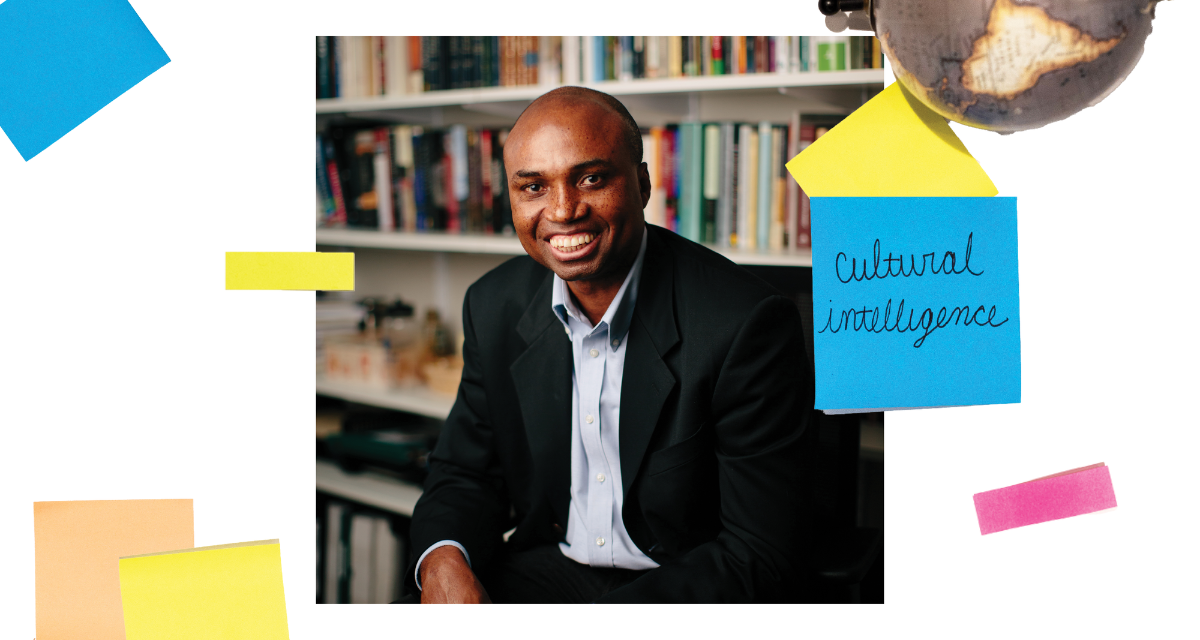What has faith to do with cultural intelligence?
A version of this article by Dr. Daniel Darko, professor of New Testament, originally appeared in the spring 2023 issue of STILLPOINT magazine.
If we look back 2,000 years to the New Testament, we see Christians grappling with cultural issues not that dissimilar from issues we face today. In Acts 6, there was an issue of discrimination in food distribution, with cultural prejudices influencing how widows were cared for. In Acts 15, Paul experienced contentions with fellow believers in Antioch over specific cultural questions of circumcision and diets, and the Church had to wrestle with this. In the story of the Good Samaritan, we see deep-seated cultural and religious differences impacting someone’s livelihood.
Christianity gets into trouble, and has been in trouble historically, when we make it a local religion (“American Christianity,” “Asian Christianity,” “African Christianity”) or when we dig in our heels denominationally. These categories make no attempt to understand how varied cultural expressions play in how we experience God. As a Ghanaian-American, my personal cultural sensibilities affect my perception of God, my prayer life and how I see my sense of community. When we ignore the critical framework of culture (in all its variety), we fail to understand how the church should look and how the church should engage the world.
This is called cultural intelligence. It’s the capability to deal with people across cultures—in ministry, in the workplace, in our neighborhoods. The lack of cultural competency would compel us to see a particular peoples’ diets or family structure or practices and draw conclusions based on our own cultural understandings. A willingness to actively listen, interact with and learn from other cultures begins from the idea that we are all made in the image and likeness of God. It is seeded in a reverence for God our Creator because culture, and the people who embody it, are God’s creation. Multiplicity of culture doesn’t threaten the integrity of our own, but rather it widens and strengthens the beauty of God’s creation.
When we realize that sameness is not a prerequisite for relatability, we begin to view “different” as less of an imposition or a threat and more of an opportunity to orient toward better engagement. Cultural competencies allow us to serve people who are not like us, even who make us uncomfortable. We can only render meaningful service in God’s world and to God’s humanity when we have first become self-aware about the prejudice and biases that hinder our ability to reach out to all people, and then attempt to learn by listening and being present.
Cultural intelligence is learned and can be done in small portions. First, just look for your neighbor and try to learn something new about them. Pause after you ask, “How are you doing?” and see if you can move past the rote “fine” and “good” responses. Without any specific transactional motivation, begin seeking and sharing stories, no matter how small. You may begin to realize that the neighbor who is slightly different in terms of culture or race or even generation actually has more in common than you thought.
Second, when you are passively listening to things that involve other cultures, like television shows or radio programs, try to catch your first reactions and ask, “What might be some implicit prejudices that make me reach a quick conclusion about this person? Why am I feeling something intense about this person?”
When we shift from a posture of fear to a posture of curiosity, we begin to realize that we can love people for who they are, that we can understand where they are coming from and appreciate what they bring. Each new neighbor, new job, new church is an opportunity to grow your cultural intelligence and in doing so, expand your worship of God our Creator by investing in his wonderfully diverse creation.
 The Bell
The Bell